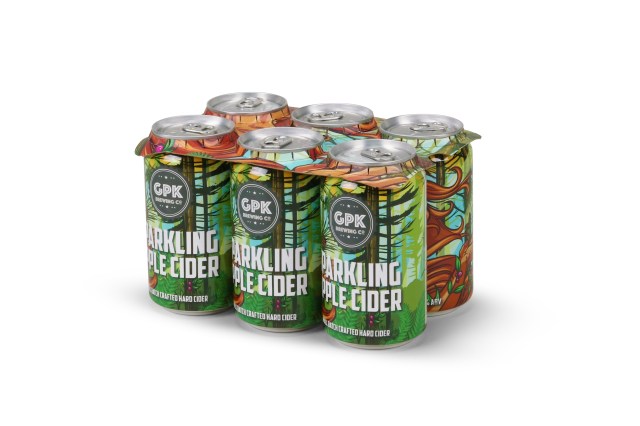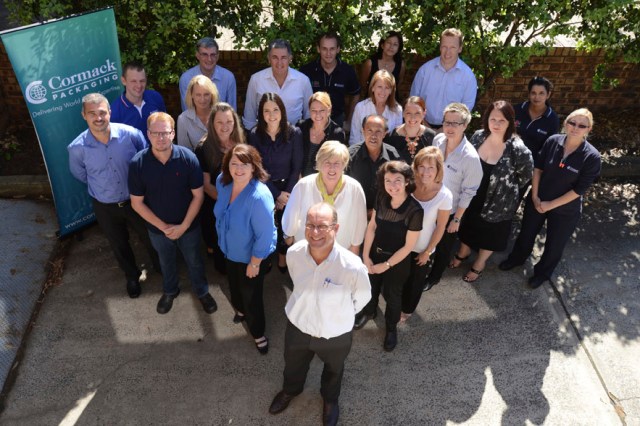
Sustainability and adopting it into business practices was one of the topics spoken about at a recent panel discussion in Melbourne, especially since conversations around the value of driving sustainable messaging have been increasing.
This panel session, organised by Ball & Doggett, featuring Close the Loop Group CEO Joe Foster, The Real Media Collective director Phillip Mariette, Work Works managing director Charlton Hemingway and PonyUp for Good founder Mardi Brown addressed the topic.
Mariette said the print and packaging industry is starting to have sustainability conversations in ways that it hasn’t before.
“Paper and recycling have been on a journey. And we’re now in a place where sustainability is on everybody’s lips,” he said.
“This means there’s new rules on the table, and we’ve all got to start thinking about them. But where is all starts is with conversation. What we need to all do is be there at the start of every one of our clients’ projects – no matter how big or small – and have these sustainability conversations with them.
“That conversation that starts with everybody at the table could create a solution that perhaps didn’t exist before.”
Brown said one of the biggest environmental challenges that it found in Australia was that only 20 per cent of technology and e-waste is formally recycled at a 15 million tonnes every year. But the estimated value of raw materials from e-waste is worth over $62 million annually.
PonyUp for Good is a social enterprise that provides e-waste sustainability services and community impact outcomes.
“There’s a ton of technology which is not being recycled. At the same time, 7.3 million Australians waste around 7.3 million tonnes of food each year – that’s about 300 kilos per person. And 40 per cent of that fresh produce goes into landfill,” she said.
“So, how can you print business commercialise your sustainability efforts? You must make it into everything that you do. Look at your brand – you need to decide who you want to be in market, look at your reputation, brand engagement, your loyalty across your brand, and what that needs to stand for.
“Then you need to understand what your environmental, sustainable and community impact goals are and increase transparency around it. You also must build it into your own company culture as the younger generation is looking to work with organisations that have an active, sustainable plan in place.”
Production management consultancy Work Works aims to help navigate the language of design and translate the capabilities of manufacturing.
Hemingway said that involves being the bridge between creative and printers and helping businesses create products that have impact, but don’t leave their mark on the environment.
“For us, sustainability is about value. One example of the work that we have produced is algae ink. It was an internal project campaign and our inks in this format is a first in Australia. It’s like any traditional printing ink – vegetable oil based – but the pigment itself comes from an algae cell rather than carbon black,” he said.
“Traditionally, carbon black was used to create that pigment, and it being a fossil fuel, was obviously not the greatest thing for sustainability. Furthermore, in high doses, carbon black isn’t healthy for humans.
“So we partnered with some great collaborators overseas and through lithography offset, printed down on Ball & Doggett media using this algae ink.”
Foster has been pushing for the messaging around creating a circular economy for quite some time here in Australia.
“From a sustainability point of view, we talked about what we can do, but there’s still the question of how we’re going to do it – what do we need to do to achieve our National Packaging Targets by 2025?” he asked.
“We need to be active as a group and industry in getting the best efficiency and performance from our machines, but in the most sustainable way. We need the discussions around minimising waste, recyclability and carbon emissions.
“We need legislation, which is one of the biggest driving factors around our future from a sustainability perspective, not just within packaging, but within print and the products that we’re putting into the marketplace.
“There’s no simple solution but as a starting point, we need to figure out the balancing act between sustainability and the current types of products that we’re using at the moment.”


